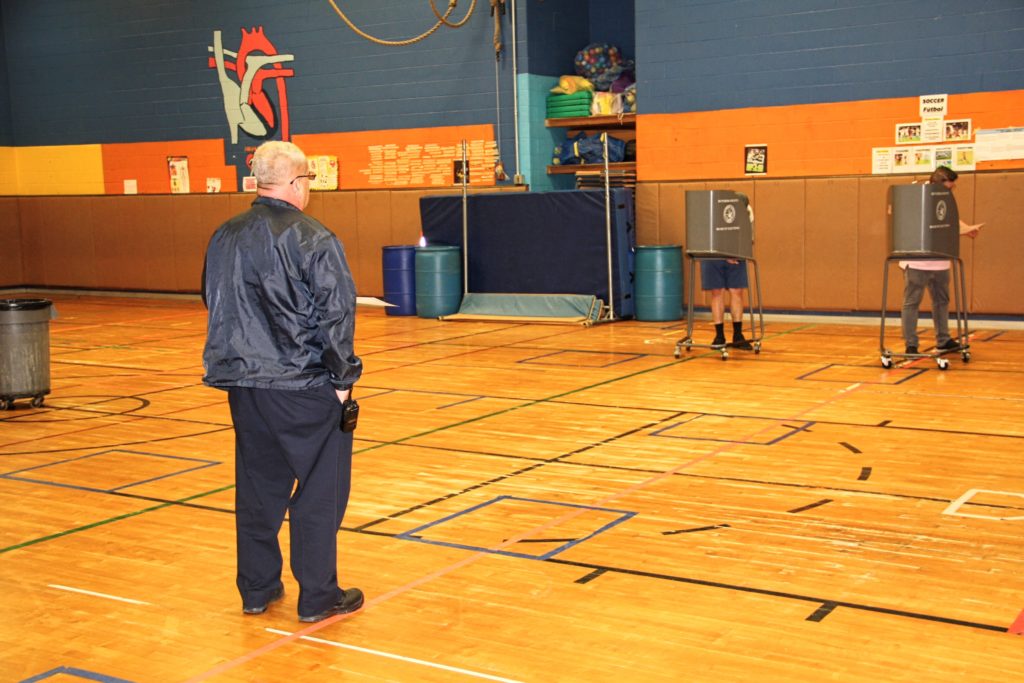ALBANY – New Yorkers age 50 and over cast 75 percent of all ballots in the August 23 primaries statewide, vastly overrepresenting their share of just over half of all registered voters across the state, according to new data commissioned by AARP New York.
The 50 and over (50+) group accounted for 80 percent or more of the turnout on Long Island and in every region north and west of the Hudson Valley.
The 50+ made up an even greater share of New Yorkers who voted in all four of the last general elections, according to AARP New York, accounting for 77 percent of the combined turnout statewide going back to 2018, according to the data from the New York State Board of Elections.
“There is so much at stake in this fall’s mid-term elections, and it’s clear the 50+ are the dominant voting bloc,” said AARP New York State Director Beth Finkel. “The 50+ will be the deciders in next month’s elections – have provided a roadmap for candidates, and they want to count on Social Security and Medicare, lower prescription drug prices, and the ability to receive long-term care at home.”
AARP New York and the Empire Report have been sponsoring debates between congressional candidates with questions focusing on Social Security and Medicare. Earlier this week, Democratic Congressman Pat Ryan (NY-19) and his opponent, Republican State Assemblyman Colin Schmitt, engaged in a virtual debate. The Mid-Hudson News coverage can be found here, and the 30-minute debate can be viewed here.
Key takeaways from a recent AARP New York survey of New York residents age 45 and older show:
- 92% say it’s “extremely” or “very important” to have adequate Social Security benefits and 89% to have Medicare benefits available to them in the future;
- 80% support requiring pharmaceutical companies to use lower Canadian prices when selling prescription drugs in New York;
- 77% would prefer to receive care or help for themselves or a loved one at home – with only 2% preferring a nursing home – though 84% support additional funding for New York’s federally-required Long-Term Care Ombudsman Program, the independent eye and advocate for nursing home residents;
- 83% support expanding funding for respite care, which provides a break for the unpaid family caregivers who help New Yorkers age at home – with support by 88% of Democrats, 81% of Republicans, and 76% of independents;
- 74% support making it easier for property owners to create “in-law” apartments on owner-occupied properties with safeguards for public health, traffic and parking. Such “accessory dwelling units” can provide affordable housing and help caregivers and loved ones stay close, among other benefits;
- 80% support a one-time state income tax credit for renovations to existing homes or construction of new homes to help New Yorkers remain in their homes as they age – with 86% of Democrats, 80% of Republicans and 75% of independent voters in support. A bill to create such a tax credit has passed the state legislature and is expected to go to the Governor before the end of the year;
- 70% cite increasing rent and 61% increasing property taxes as impacting “a lot” their ability to remain in their home as they age.
- The vast majority said they’d be much or somewhat more likely to vote for a candidate who advocates lower property taxes (84%), lower income taxes (85%), increased safety in communities by reducing crime (89%), expanded access to quality, affordable long term care for the elderly – from home care to nursing homes (86%), lower prescription drug prices (88%), and increased access to affordable housing (78%).








